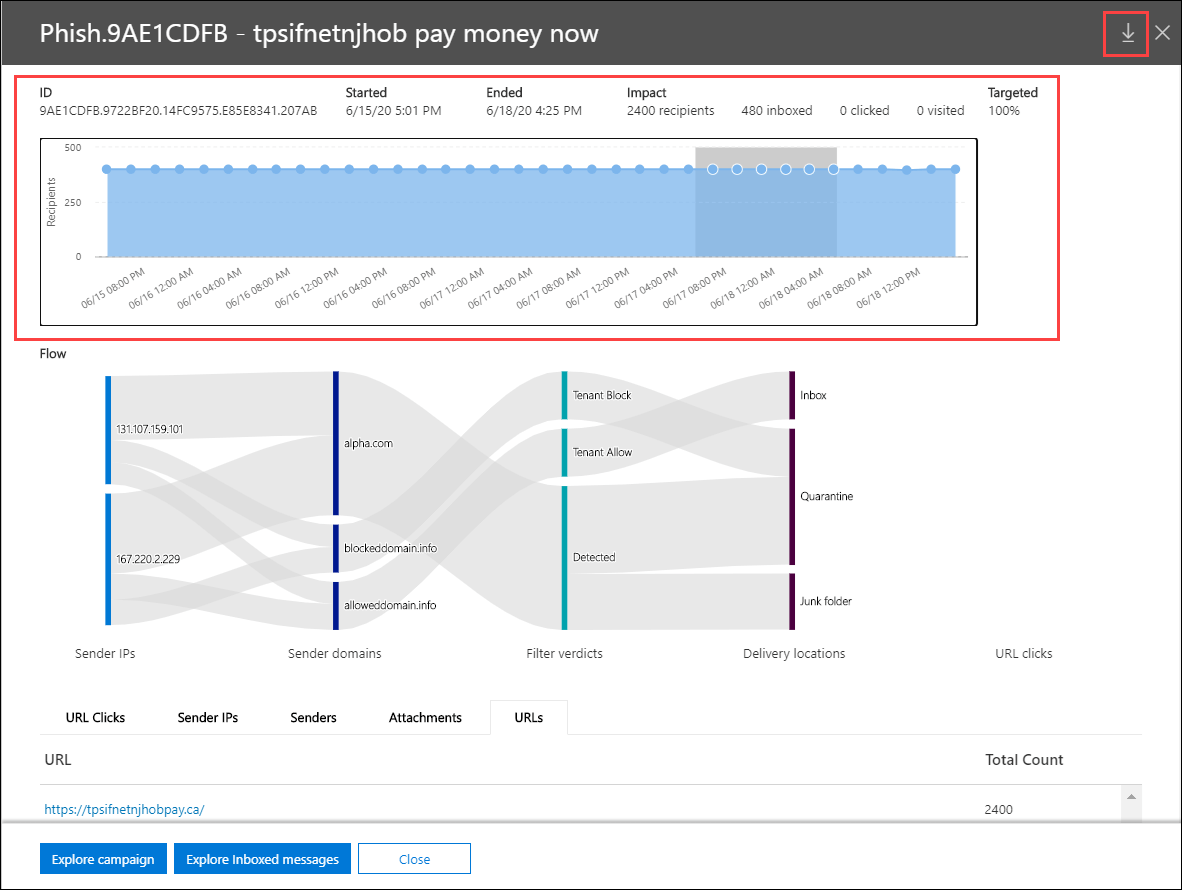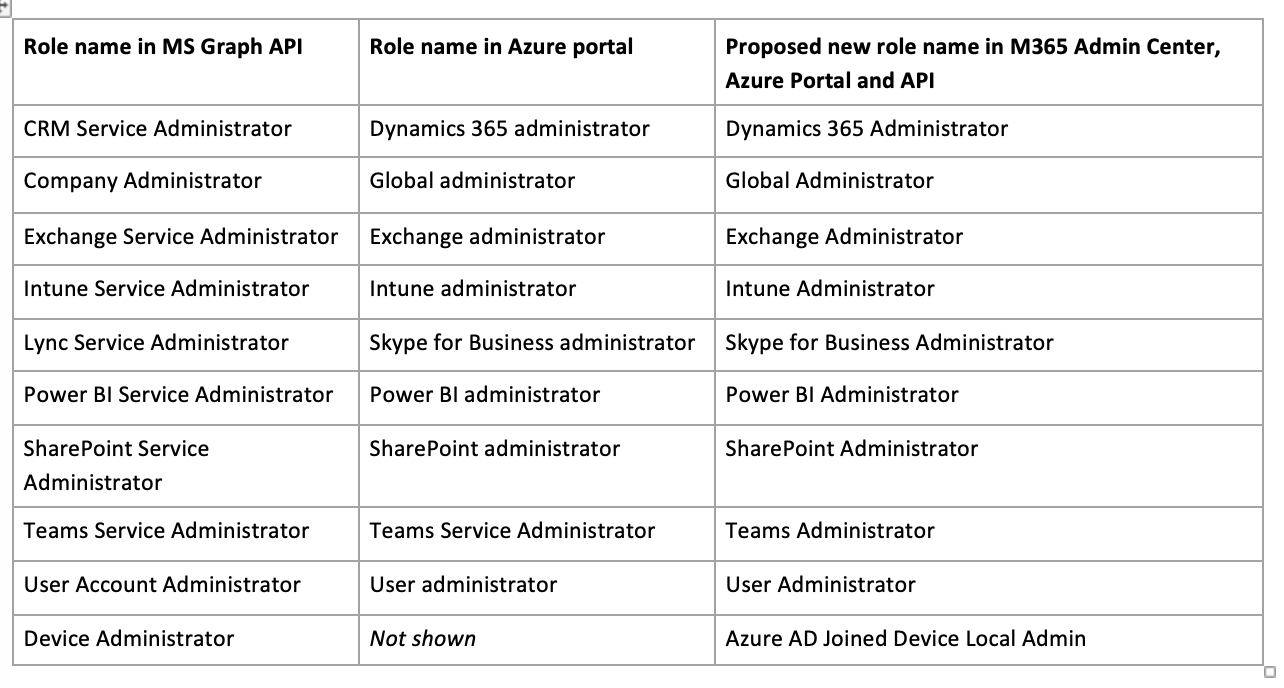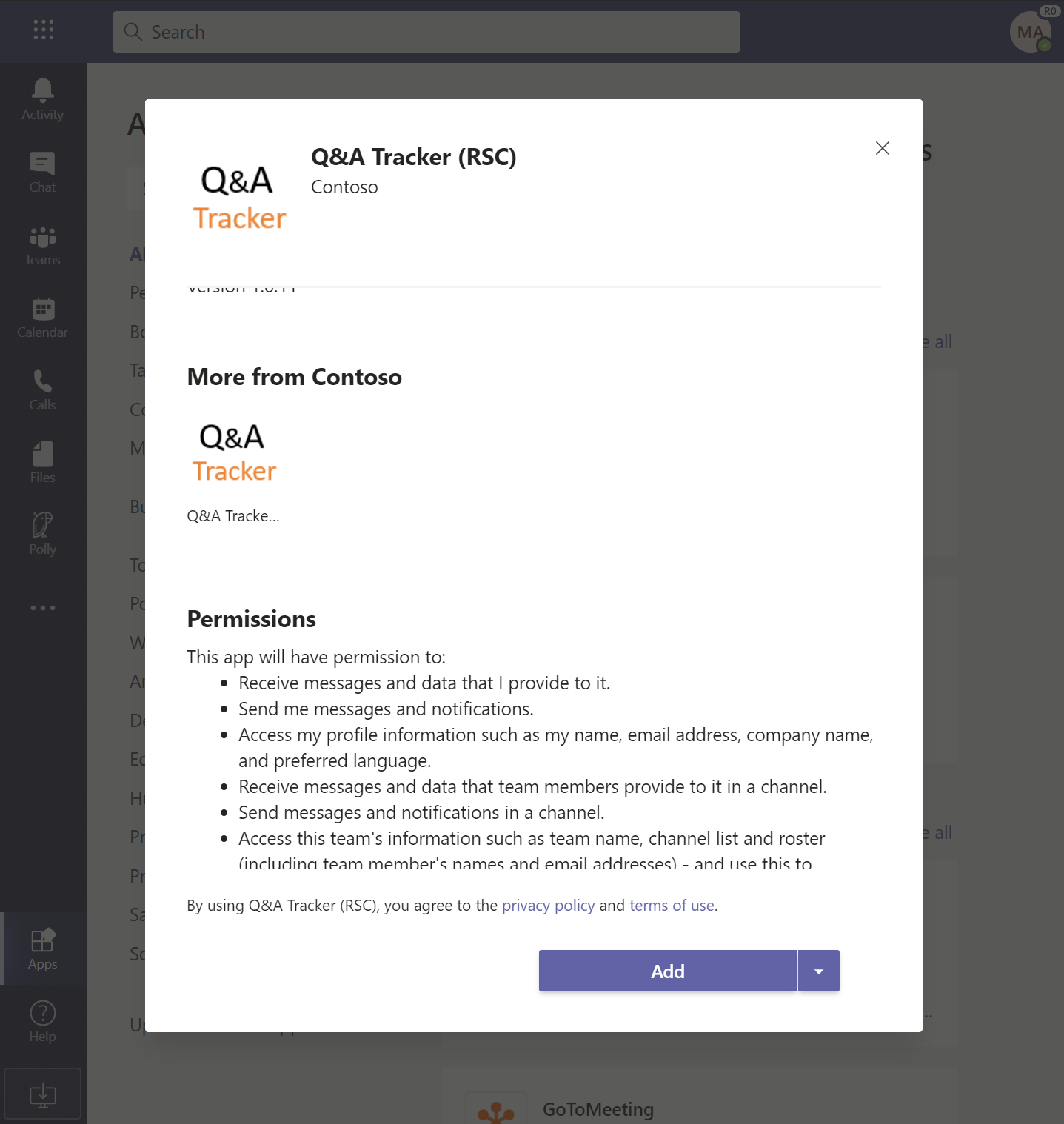Microsoft 365 Updates: Microsoft announce PSTN Calling Plans at no extra cost, Active Directory role name changes, and additional Microsoft Teams compliance features
Key Updates and Announcements
Happy Friday, everyone.
Microsoft announce new licensing giving PSTN Calling without additional cost. The new license structure is valid where PSTN Calling is available, excluding United States and Puerto Rico, it does not include PSTN Calling via 3rd party carriers in countries such as Australia and Japan. Microsoft has more information here.
Delayed and Rollout Date Change Announcements:
- (Updated) Customization of quarantine notification : To be rolled out to standard release customers End July (Previously Mid July) and government customers September (Previously Mid August)
Reminder
- Reminder: Office 2013 Client Connectivity to Office 365 Services : We are republishing the content for MC190854 (Sept, 2019) as it was removed from Message center prematurely. The original message is provided below. We apologize for the inconvenience.
New Microsoft 365 Features
Note: Please ensure you’re signed into your Office 365 Administration portal to access the links referenced below. Also note, some tenants may not have all the below updates currently published to them
Office 365 ATP Campaign View enhancements
Click here for more information
MC218283, Stay Informed, Published date: Jul 10, 2020
We are making some enhancements to Office 365 campaign views.
This message is associated with Microsoft 365 Roadmap ID 62495
When this will happen
We will begin rolling out in mid-July and expect to be complete by the end of July.
How this will affect your organization
Once rolled out the following enhancements will be available:
- Malware attacks are now expressed as campaigns and benefit from the same advanced clustering and visualization that phish campaigns have had
- Campaign timeline is now interactive, allowing inspection of what specific IOCs were active at a particular time interval in the attack
- Few other enhancements to campaign views overall

Microsoft Power Platform Release Wave 2
Click here for more information
MC218287, Stay Informed, Published date: Jul 10, 2020
Today, we published the 2020 release wave 2 plans for Microsoft Power Platform, a compilation of new capabilities that will be released between October 2020 and April 2021. The new features and enhancements demonstrate our continued investment to power digital transformation for our customers and partners.
We’ve done this work to help you—our partners, customers, and users—drive the digital transformation of your business on your terms.
We are renaming 10 Azure Active Directory roles
Click here for more information
MC218295, Plan For Change, Published date: Jul 11, 2020
Action required by Aug 14, 2020
Some Azure Active Directory (AD) built-in roles have names that differ from those that appear in Microsoft 365 admin center, the Azure AD portal, and Microsoft Graph. This inconsistency can cause problems in automated processes. With this >update, we are renaming 10 role names to make them consistent.
Key points
- Timing: mid-August rollout; complete in early September 2020
- Roll-out: tenant level
- Control type: admin UI
- Action: Review and assess by August 14, 2020

Communication compliance: analyze Teams chat data of users with on-premises mailbox
Click here for more information
MC218304, Stay Informed, Published date: Jul 11, 2020
Communication compliance now supports monitoring Team chat in an Exchange hybrid deployment where user’s primary mailbox is located on-premises. It will also automatically monitor all Teams that a user belongs to.
This message applies to tenants with one of these E5 or E3 licenses; otherwise, you can safely disregard this message.
This message is associated with Microsoft 365 Roadmap IDs 64186 and 64188.
When this will happen
These updates are available today.
Introducing resource-specific consent for Microsoft Teams
Click here for more information
MC218561, Stay Informed, Published date: Jul 15, 2020
Resource-specific consent (RSC) for Microsoft Teams makes it possible for team owners to consent to apps accessing their team data without explicit admin approval. Admins may choose which team owners can consent.
Key points
- Microsoft 365 Roadmap ID 56605
- Timing: mid-August; complete in mid-September
- Roll-out: tenant level
- Control type: admin control
- Action: review and assess

Updated Meeting join experience for users who don’t have a meeting creation policy assigned
Click here for more information
MC218620, Plan For Change, Published date: Jul 15, 2020
We originally communicated about an Updated Meeting join experience for users who don’t have a meeting creation policy assigned in MC209349 (April ‘20). This feature was rolled out but due to an issue was rolled back. We are now ready to move forward with rolling this out to tenants with EDU licensing.
Note: If your tenant does not have EDU licenses you can safely disregard.
Key points:
- Roadmap ID: 63355
- Timing: begin early August and expect to be complete by mid-August
- Action: review resources and assess
- Control: admin control via policy
Planned Maintenance: Pay now
Click here for more information
MC218621, Stay Informed, Published date: Jul 15, 2020
Planned Maintenance: Pay now
Note: If your organization does not use Pay now you can safely disregard this message.
We have maintenance planned for Pay now:
Starting July 18, 2020 08:00 UTC Ending July 18, 2020 16:00 UTC
Admin operations for exporting Power Apps and Power Automate user licenses
Click here for more information
MC218626, Stay Informed, Published date: Jul 15, 2020
As part of the planned transition from the Power Apps and Power Automate admin centers to the Power Platform admin center, all admin operations and associated cmdlets have been migrated to Windows PowerShell. With this change, admins have the capability to export a list of assigned Power Apps and Power Automate user licenses by performing administration operations using the admin cmdlets.
How does this affect me?
There is no option to download the list directly from the Power Platform admin center. Instead, you will need to install PowerShell to perform operations using the associated admin cmdlets.
Teams message translation will be enabled by default
Click here for more information
MC218683, Plan For Change, Published date: Jul 16, 2020
Action required by Aug 3, 2020
Major update: Announcement Applies To: All
We’re changing the default tenant policy setting for Teams inline message translation.
Key points
- Timing: early August; complete mid-August
- Roll-out: tenant level
- Control type: admin control
- Action: review and assess by August 3, 2020.
How this will affect your organization If you have not previously customized the messaging policy for your tenant or assigned your users a custom messaging policy, message translation will be enabled by default.
- Users in tenants where message translation is enabled will be able to translate chat or channel messages by clicking “Translate” from the message actions menu.
- Currently, message translation is available for Teams desktop client and the Teams web app. It recently rolled out for the Teams iOS app (MC216842, May 2020).
New file sharing experience in Teams
Click here for more information
MC218732, Stay Informed, Published date: Jul 16, 2020
Major update: Announcement Applies To: null
With this feature, users will have a file sharing and access control experience in Teams that is similar to their experience with other Microsoft 365 apps.
Key points
- Microsoft 365 Roadmap ID 51230
- Timing: mid-August; complete mid-September
- Roll-out: tenant level
- Control type: admin control
- Action: review and assess
How this will affect your organization With this update, when users share a file from within Teams, they will have the option to create sharing links that provide access to
- anyone,
- people within your organization,
- people with existing access or
- specific people, including those in a 1:1 chat, group chat, or channels.
Before users share a file in a chat and channels, they will be notified if recipients don’t have permission to view the file. The user can change permissions before they share the file (if they have permission to do so).
Updates available for Microsoft 365 Apps for all channels
Click here for more information
MC218733, Stay Informed, Published date: Jul 16, 2020
We’ve released updates to the following update channels for Microsoft 365 Apps:
- Current Channel
- Monthly Enterprise Channel
- Semi-Annual Enterprise Channel (Preview)
- Semi-Annual Enterprise Channel
When will this happen?
We’ll be gradually rolling out these updates of Microsoft 365 Apps to users on those update channels starting July 14th, 2020 (PST).
How does this affect me?
If your Microsoft 365 Apps clients are configured to automatically update from the Office Content Delivery Network (CDN), then no action is required.
If you manage updates directly you can now download these latest updates and begin deployment.